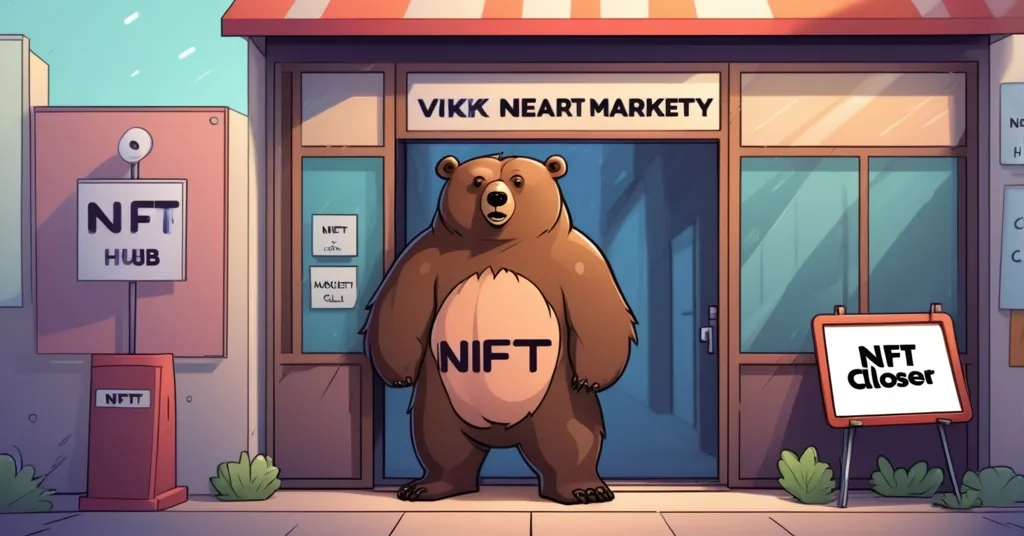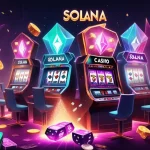VK NFT Hub Closes Amid Financial Losses, Signals Broader NFT Market Struggle

Russian Social Network VK Shuts Down NFT Marketplace Amid Financial Struggles
VK, the Kremlin-backed social media giant in Russia, has announced the closure of its NFT marketplace, VK NFT Hub, due to significant financial difficulties. Launched in December 2022, the platform will cease operations on April 15, 2024, requiring users to transfer their NFTs to external wallets by this date. This move comes as VK’s net loss nearly tripled to 94.9 billion rubles in 2024, prompting the company to issue new shares to raise up to 115 billion rubles in an effort to reduce its debt. The closure of VK NFT Hub is part of a wider trend of NFT marketplace shutdowns, reflecting broader challenges within the industry.
- VK NFT Hub to close on April 15, 2024
- Launched in December 2022
- Users must move NFTs to external wallets
- VK’s net loss almost tripled in 2024
- Plans to raise 115 billion rubles through share issuance
- Part of a wider trend of NFT marketplace closures
The decision to close VK NFT Hub has caused a stir among crypto enthusiasts, as users rush to secure their digital assets before the deadline. After April 15, visual markers associated with NFTs on VK will be removed, leaving no trace of the platform’s once-ambitious foray into the world of digital art and collectibles. This closure is not an isolated event but part of a troubling trend within the NFT sector, with other platforms like LG Art Lab, X2Y2, and Bybit’s NFT marketplace also shutting down.
VK’s financial struggles paint a stark picture. Despite reaching a record-high revenue of 147.57 billion rubles in 2024, the company’s net losses have increased dramatically, necessitating drastic measures. In a bid to lighten its financial load, VK plans to issue new shares, aiming to raise up to 115 billion rubles. This move, while necessary, could dilute existing shareholders’ stakes, adding another layer of complexity to VK’s financial strategy.
The broader NFT industry is experiencing its own set of challenges. Global NFT market sales dropped by 24% from December 2024 to January 2025, signaling a market downturn. This downturn affects not just standalone NFT platforms but could have ripple effects on other sectors within the cryptocurrency space, such as decentralized finance (DeFi) and blockchain gaming. Decentralized finance (DeFi) refers to financial services built on blockchain technology that operate without traditional intermediaries like banks, while blockchain gaming involves games that utilize blockchain for asset ownership and trading.
Moreover, the regulatory uncertainty that contributed to Bybit’s closure suggests that the challenges are not just economic but also legal. With VK under state control since 2021, one cannot overlook the influence of the Kremlin on such business decisions. This state control adds a geopolitical dimension to VK’s operations, potentially affecting its strategic direction and financial stability.
Despite these setbacks, there’s a glimmer of hope for those who champion decentralization and freedom. The closure of centralized platforms like VK NFT Hub might encourage more users to explore truly decentralized solutions, where the ethos of blockchain technology—freedom, privacy, and disrupting the status quo—can thrive. Effective accelerationism (e/acc), a philosophy that supports rapid technological advancement to drive societal progress, could see a resurgence as users seek more resilient systems. However, the transition to decentralized platforms isn’t without its challenges, including technical difficulties and user adaptation.
While the closure of VK NFT Hub is a blow to the NFT industry, it’s a reminder of the rollercoaster ride of innovation. Bitcoin and other cryptocurrencies continue to push the boundaries of what’s possible in finance, even as the NFT sector faces headwinds. As VK tightens its belt, it seems even digital art can’t escape the cold hand of financial reality. Yet, in the spirit of effective accelerationism, we can hope that this setback will spur the next wave of innovation in the crypto space.
Key Insights on VK NFT Hub Closure and NFT Market Trends
- What led to the closure of VK NFT Hub?
VK’s significant financial difficulties, with the company’s net loss nearly tripling in 2024 to 94.9 billion rubles, forced the closure of its NFT marketplace.
- What are the implications for VK NFT Hub users?
Users must transfer their NFTs to external wallets by April 15, 2024, as the platform will shut down, and visual markers associated with NFTs on VK will be removed.
- How is VK addressing its financial challenges?
VK plans to issue new shares to raise up to 115 billion rubles, aiming to use these funds to reduce its debt.
- What broader trends are affecting the NFT industry?
The NFT industry is experiencing a wave of marketplace shutdowns, including VK NFT Hub, LG Art Lab, X2Y2, and Bybit’s NFT marketplace, indicating broader challenges within the sector.
- How might this impact the movement towards decentralization?
The closure may push users towards decentralized solutions, where blockchain’s ethos can thrive, though technical challenges remain.



